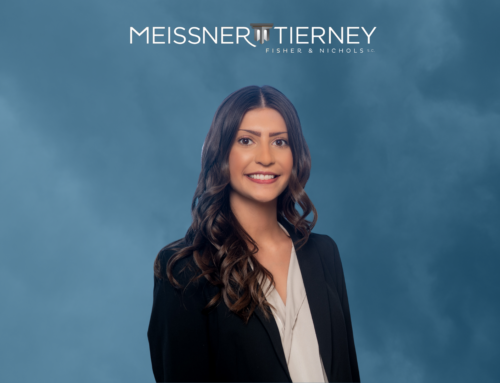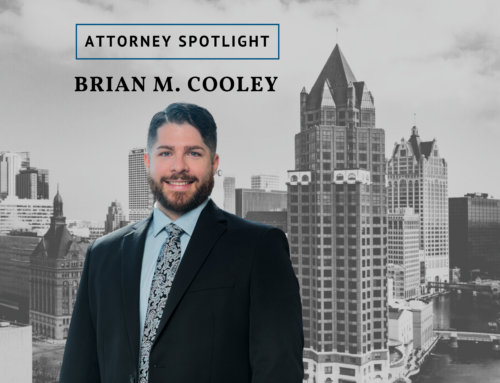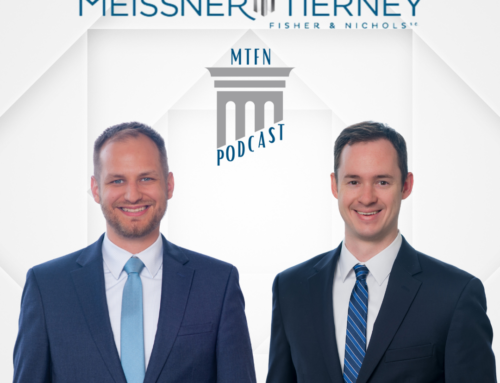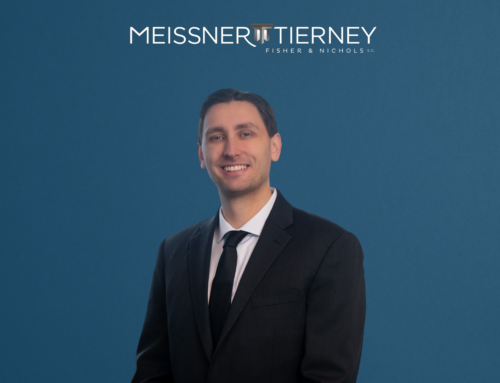The court’s October oral argument calendar is nearly as stacked as September’s was with another six civil cases set to be heard. Among other issues, the court will wade into a public employment dispute and decide a pair of tax questions. Plus, § 1983 makes a rare appearance at the state’s high court. Read on for the full preview of what’s to come in the month ahead.
Saint John’s Communities, Inc. v. City of Milwaukee, No. 2020AP1696
Taxation
Oral Argument: October 6
The exclusive remedy to challenge a tax exemption decision is under Wis. Stat. § 74.35. That statute permits a “person aggrieved by the levy and collection of an unlawful tax” to file a claim with the taxation district that collected the tax. Saint John’s Communities filed a claim challenging the City of Milwaukee’s non-exempt determination, but it did not pay the first installment of the taxes levied against it until the day it commenced this action challenging the City’s denial of its claim. And therein lies the dispute. The City argues—and the court of appeals held—that Saint John’s Communities’ complaint must be dismissed because it had not yet paid any taxes when it filed its claim with the City. For its part, Saint John’s Communities contends that § 74.35 does not require that taxes be paid before a claim is filed, provided the taxes are not yet due.
Dostal v. Strand, No. 2020AP1943
Insurance
Oral Argument: October 6
This summary judgment case asks whether a father’s conviction for second-degree reckless homicide of his infant daughter prevents the mother from recovering against the father’s homeowner’s insurance policy. The court of appeals affirmed summary judgment for the insurer because no jury could reasonably conclude, in light of the criminal conviction against the father, that the daughter’s death was an accident (and therefore a covered occurrence). Before the supreme court, the mother primarily argues the court of appeals improperly ascribed preclusive effect to the father’s criminal conviction. The parties also briefed whether the policy’s intentional acts exclusion or resident-relative exclusion bars coverage.
Slabey v. Dunn County, No. 2020AP877
Civil Rights
Oral Argument: October 10
A rare § 1983 case at the state supreme court is set for argument at an unusual location thanks to the court’s Justice on Wheels program. The justices will pack their robes and head to the Waupaca County Courthouse to consider an inmate’s claim that Dunn County (which operates the jail) failed to protect her from a correctional officer’s sexual assault. The inmate contends the County failed to properly train, monitor, supervise, and discipline the guard given his history of flirting and fraternizing with inmates. The court of appeals affirmed summary judgment for the County, holding that the evidence presented did not demonstrate “deliberate indifference to a substantial risk” that the officer would sexually assault an inmate.
Milwaukee Police Supervisors Organization v. City of Milwaukee, No. 2019AP1319
Collective Bargaining
Oral Argument: October 12
The court is asked to interpret a benefit calculation provision of a collective bargaining agreement between the City of Milwaukee and the Milwaukee Professional Firefighters’ Association Local 215. The CBA provides for both a pension contribution and a pension offset payment. The parties disagree whether Duty Disability Retirement beneficiaries—who do not make pension contributions—are entitled to the pension offset payment. The court of appeals said no, relying on language in the CBA it understood to condition receipt of a pension offset payment on the member making a pension contribution.
Allsop Venture Partners III v. Murphy Desmond SC, No. 2020AP806
Evidence & Torts
Oral Argument: October 17
This complex dispute arises from a 2001 corporate transaction which, for tax reasons, went seriously awry. The appeal includes a question about whether a negligent tortfeasor is entitled to indemnity from an intentional tortfeasor. But the court’s primary focus is likely to be on an evidentiary question. Wisconsin Stat. § 904.08 generally forbids admission of settlement evidence, but it has an exception for evidence offered to prove “bias or prejudice of a witness.” The supreme court previously held this exception is triggered when “the posture of a settling party was significantly different as a result of the settlement.” Morden v. Continental AG, 2000 WI 51, ¶ 83, 235 Wis. 2d 325, 611 N.W.2d 659. In this case, after settling with several defendants, the plaintiffs amended their complaint to focus their claims on the remaining defendants. At trial, the remaining defendants introduced evidence highlighting the settlements the plaintiffs had already obtained from the other defendants. The court of appeals affirmed admission of the settlement evidence, explaining that the plaintiffs’ change in litigation posture following its prior settlements triggered the statutory exception. The plaintiffs now argue that the court of appeals focused too much on whether a settling party’s posture changed following settlement (the language in Morden), rather than whether the evidence was offered to prove the bias or prejudice of a witness (the language of the statute).
Citation Partners, LLC v. DOR, No. 2020AP1683
Taxation
Oral Argument: October 17
Citation Partners owns and leases a Cessna Citation airplane. Under its lease agreements, Citation Partners is responsible for servicing and maintaining the airplane. In turn, the lessees “reimburse” Citation Partners for the maintenance costs as part of their regular lease payments. At issue in this appeal is whether the portion of the lease payments that cover Citation Partners’ maintenance costs are exempt from sales tax. Generally, under Wis. Stat. § 77.51(15b), leases of tangible personal property are taxed based on the “total amount of consideration” for which the property is leased, without deducting the lessor’s costs of owning and maintaining the property. However, Citation Partners argues that a recently enacted sales tax exemption for aircraft service and parts exempts the portion of the lease payments that reimburse Citation Partners for the airplane’s maintenance expenses. The court of appeals disagreed, explaining that while direct purchases of aircraft service or parts may qualify for the exemption, lease payments, regardless of whether they’re labeled, do not. Before the supreme court, Citation Partners argues that it is merely an agent of the lessees, such that the exemption applies as though the lessees purchased the aircraft service and parts directly.






